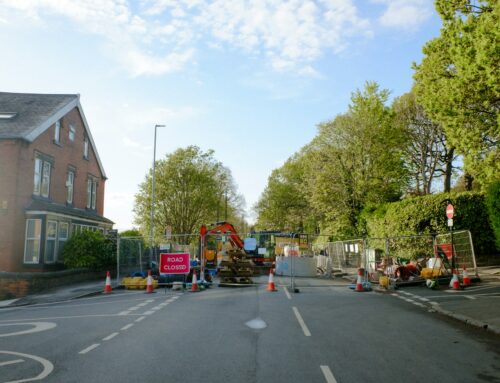Transport consultants and stakeholders in the UK’s transport infrastructure are increasingly looking to Wednesday 30th October, which looks set to be an instrumental day in boosting our understanding of what the country’s economy will look like under Labour.
That day will see Chancellor of the Exchequer Rachel Reeves deliver her first Autumn Budget, following Prime Minister Sir Keir Starmer’s party’s emphatic victory in the July general election.
Will the Spending Review announcements spell good or bad news for UK transport?
There have been mixed messages so far about whether the Budget and Spending Review will be cause for trepidation, or perhaps even celebration, for transport consultants, their clients, and the UK as a whole.
Although the Chancellor has indicated that “tough decisions” will need to be made about the public finances, Mr Starmer has cited “rebuilding Britain” as a point of focus for the Budget. Clearly there are matters requiring urgent action, given that the UK is finding itself in the midst of a housing crisis. This raises the prospect of possibly significant investments in transportation infrastructure and travel measures to enable the additional homes being delivered.
In the meantime, we wait to see exactly what form those announcements might take. Many key figures in the UK’s transport sector, however, have weighed in with their own hopes. Among those individuals has been Sue Percy CBE, chief executive at the Chartered Institution of Highways and Transportation (CIHT).
“We are all aware that there is not going to be unlimited funds available”
The UK-based learned society has recently published its 2024 Budget submission, available on the organisation’s website.
This document sets out various recommendations for the Spending Review, backing up the charity’s declaration that “the highway network will need to be at the centre of a high-growth, high-productivity, and low-carbon economy that is at the heart of the new government’s vision for the UK.”
CIHT’s recommendations for the Government include, but are not limited to:
- Delivering a local roads investment strategy with a minimum five-year funding commitment for the maintenance and renewal of local roads
- Setting up a dedicated fund to assist and speed up the delivery of highways projects to mitigate climate-change impacts in vulnerable areas
- Providing assurance that local authorities will have the funds enabling them to share and implement best practice in road safety
- Making available consistent funding to reshape the infrastructure and services that will be necessary to promote walking, cycling, and public transport
- Ensuring investment decisions respond to and accommodate the diverse societal needs with regard to people’s characteristics, circumstances, resources, aspirations, and geographical requirements.
Ms Percy said that in its Budget submission, CIHT had “highlighted how having effective highways and transportation networks and services will stimulate the UK economy, increase employment opportunities, improve air quality, deliver on net zero, improve the health of society, and make transport more accessible for all”.
She added: “We are all aware that there is not going to be unlimited funds available to deliver the changes and improvements to highways and transportation infrastructure and services that we need.
“We are calling for government to work with CIHT and other stakeholders to investigate mobility pricing such as a pay-per-mile scheme to help reduce congestion and meet environmental targets.”
Engage the services and expertise of the complete transport planning consultancy
To take advantage of the guidance and knowledge of leading transport consultants to help optimise your projects, please enquire today to your closest Transport Planning Associates (TPA) office. When you do, our specialists can give you the benefit of the best-targeted and most suitable transport planning and infrastructure advice.





